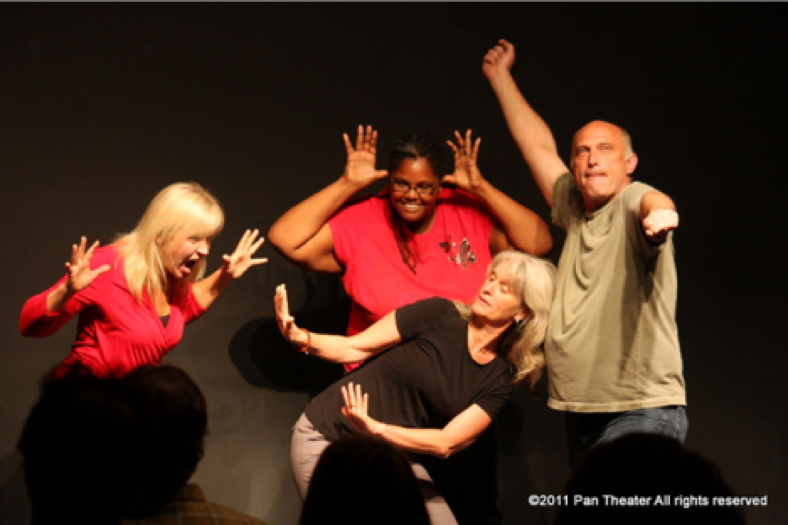Summer Oakland Auditions
Improvising, Learning, Listening

(Pan's Spring 2011 short form training troupe in their first performance)
"Acting is the reality of doing under emotional (imaginary) circumstances."
Sanford Meisner
"The actors job is to justify."
Elaine May
"The external expresses the internal (action). The internal motivates the external (action). "
Jen Grimes
We are holding auditions for our improv troupe training program. We hold auditions every ten weeks approximately. Before the audition we often get questions about what we are looking for or what skills we are seeking.
I like the quotes above. I think they are two of the things that have helped me. There are of course others. "Yes, and", yield, follow the fear, find the danger, say yes and hate it...to name a few.
I like the repetition exercise. It helps develop listening skills and gets one over the wordiness.
Over the years, I had the chance to study with and some great teachers: Christy, Doug, David, Jo, Jen, Shulie, Craig, Johnny, to name a few. They have taught me many things about improv and about being human. If I had to be more specific with advice to someone improvising - I would say to play well with others and share.
Sharing focus, silence, dialogue, action and of course fun. Be someone you would want to be on stage with... Be someone that focuses on the team rather than looking good or being a star.
Listening is the hardest thing. Listening is so often neglected. Often people take turns talking. This is a bit different from really listening. Listening involves thinking (as the character), feeling what the words are doing and doing to you, being changed and responding to the other rather than the audience.
In improv people often worry so much about what they are going to say. What you say is actually easy if you are really listening and responding to the imaginary (emotional) circumstances.
If you have a point of view and personalize the conversation the what you are going to say will be there when the moment is justified. IF it it isn't there...you most likely don't have anything to say or you are blocking what you want to say.
Trust the human impulse. Check the I want to be funny impulse. So...don't rush your words, and don't hold your words back.
Live in the emotional circumstances and find the reality of what you are doing. If you find the justification you find the words and the actions.
Start by listening head to toe, whole body. Listening really is the hardest thing. We listen to the space in scenes. We listen to the silence and the actions more than the words.
Don't forget to play well with others.
What advice would you give to someone going to an audition for your team or troupe?
David Alger
Pan Theater